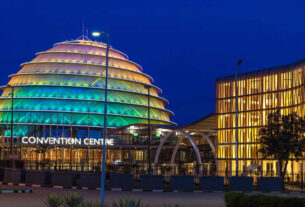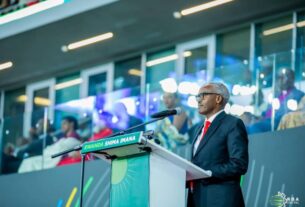After a two- month fishing vacation, fishers in Lake Kivu are celebrating a significant answer in fish populations, particularly the Isambaza species. This time’s fishing vacation, commanded by the Ministry of Agriculture and Livestock, began on August 18 and concluded on October 19, 2024. The action, which was first established 20 times ago at the request of the fishers, is designed to address the generally low fish product that occurs during the months of June, July, and September. The enforced vacation serves as a necessary pause, allowing the fish populations to regenerate and maintain a healthy ecosystem in the lake.
As fishers returned to their boats and nets after the two- month hiatus, they were pleasantly surprised by a thriving fish population. Reports from the four sections girding Lake Kivu revealed emotional catches. Specifically, Nyamasheke District reported a crop of 2,300 tons of fish, Rubavu contributed 646 tons, Rutsiro recorded 2,747 tons, and Karongi brought in 1,406 tons, totaling over 7,000 tons of Isambaza. These numbers reflect a remarkable recovery in fish stocks, which had been a concern for numerous in the fishing community previous to the vacation.
Emmanuel Ndagijimana, the head of the Karongi District Fishers’s Union, expressed the relief and joy felt by the original fishers. He explained that the action had been long- awaited, as numerous had been floundering with abating catches before the vacation.” Fishers are happy about it because we were facing a situation where one platoon caught only three fish while another returned empty- handed,” Ndagijimana remarked, reflecting on the challenges that fishers had faced in former months. The fishing vacation, he noted, handed an essential break for the Isambaza to recover and replenish their figures.
Upon the reopening of fishing conditioning, the results were mixed across the different fishing brigades in the region. The most successful group in Karongi managed to catch an emotional 70 kilograms of Isambaza, while the least successful group only caught 20 kilograms. The price of Isambaza has also changed in response to the increased vacuity of fish in the request. In August, the price of a kilogram of Isambaza had been 4,500 Rwandan Francs( Frw), but with the advanced fish stocks, the price dropped to 2,800 Frw per kilo. This drop in price is a direct result of the advanced force of fish, making it more affordable for consumers and more accessible to the original population.

For the fishers, this change in price meant varied earnings, with the platoon that caught 70 kilograms making 196,000 Frw, while the platoon that only caught 20 kilograms earned 56,000 Frw. These earnings, while varying, represent a significant enhancement compared to the struggles the fishers had faced before the fishing vacation. The increased vacuity of Isambaza provides them with a more stable source of income, which has been especially important for families dependent on the fishery for their livelihood.
In addition to the immediate profitable benefits for the fishers, the fishing vacation also plays a vital part in maintaining the ecological balance of Lake Kivu. Ndayisaba Salim, a planter from the Mushonyi Sector in Rutsiro District, emphasized the significance of the fishing break for the begetting of Isambaza. He explained,” The two- month break is pivotal because Isambaza spawns during August and November. It allows the fish to reproduce without dislocation, precluding their population from declining.” This natural reproductive cycle is essential for icing that unborn generations of Isambaza are abundant and sustainable. By allowing the fish to generate without the pressure of fishing, the vacation helps save the species for times to come.
The success of the vacation and its positive impact on the fish populations underscores the significance of sustainable fishing practices. By enforcing a regulated pause in fishing conditioning, the government and the fishing community can insure that Lake Kivu’s coffers are n’t overexploited. This vacation allows for the loss of fish stocks and the preservation of the submarine ecosystem, which is vital for the original frugality and the well- being of the communities that calculate on it.

Overall, the return to fishing in Lake Kivu has been a welcome development for the original population, as it signals the positive impact of the vacation on both fish stocks and the livelihoods of fishers. The successful recovery of the Isambaza population demonstrates the effectiveness of this action, which not only supports the sustainability of the fishery but also boosts the original frugality and improves community well- being. As the fishing season continues, fishers in the region are hopeful that the trend will continue and that they will be suitable to maintain steady catches of Isambaza throughout the time.
The two- month fishing vacation on Lake Kivu has proven to be a pivotal measure for guarding the health of fish populations and icing the long- term viability of the original fishing assiduity. By furnishing a respite for the Isambaza, the vacation allows the species to thrive and reproduce, eventually serving both the terrain and the fishers who depend on it. This action highlights the significance of sustainable resource operation and the positive issues that can be achieved through collaboration between the government and original communities. With continued sweats to maintain this balance, the future of Lake Kivu’s fisheries looks promising for both present and unborn generations.



